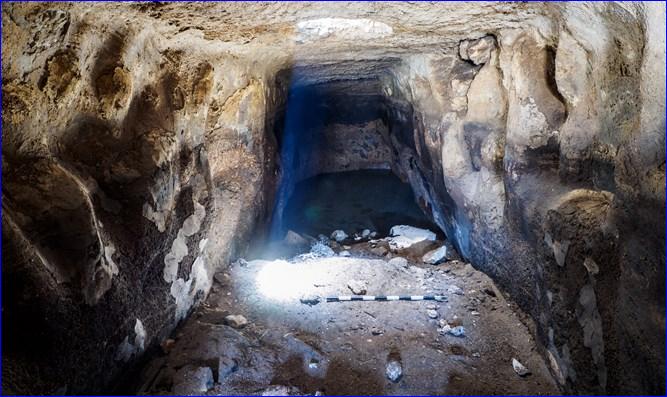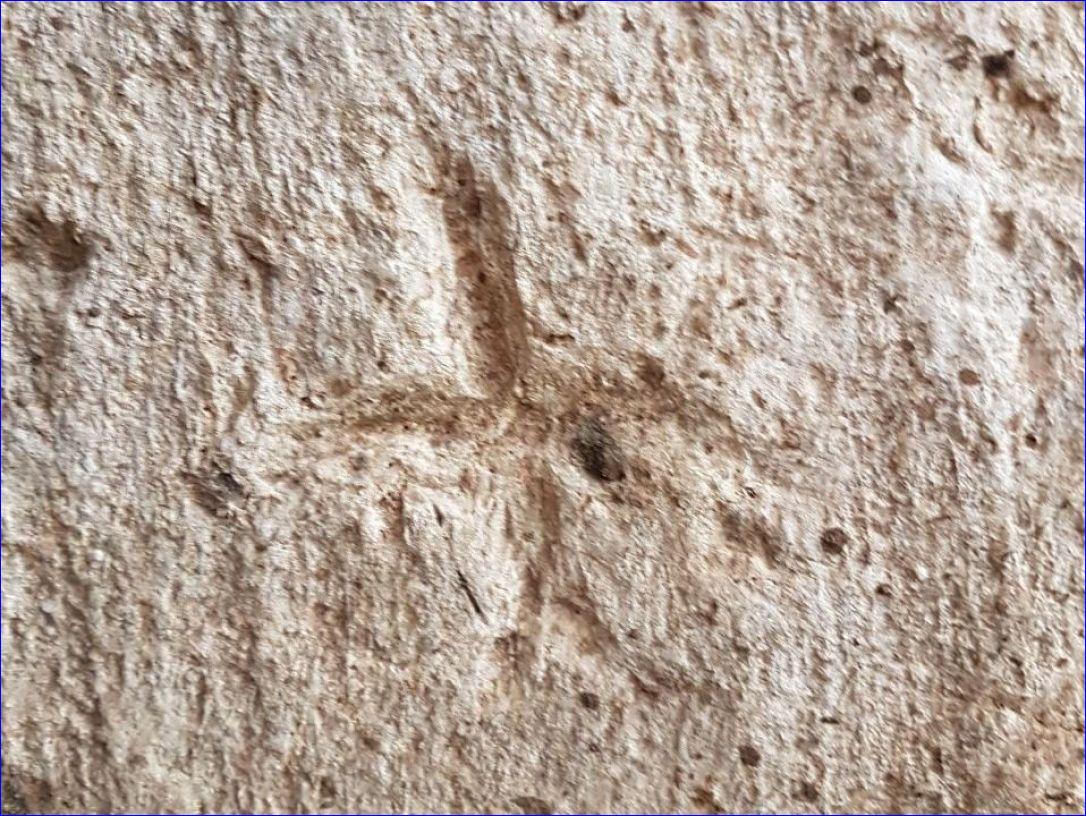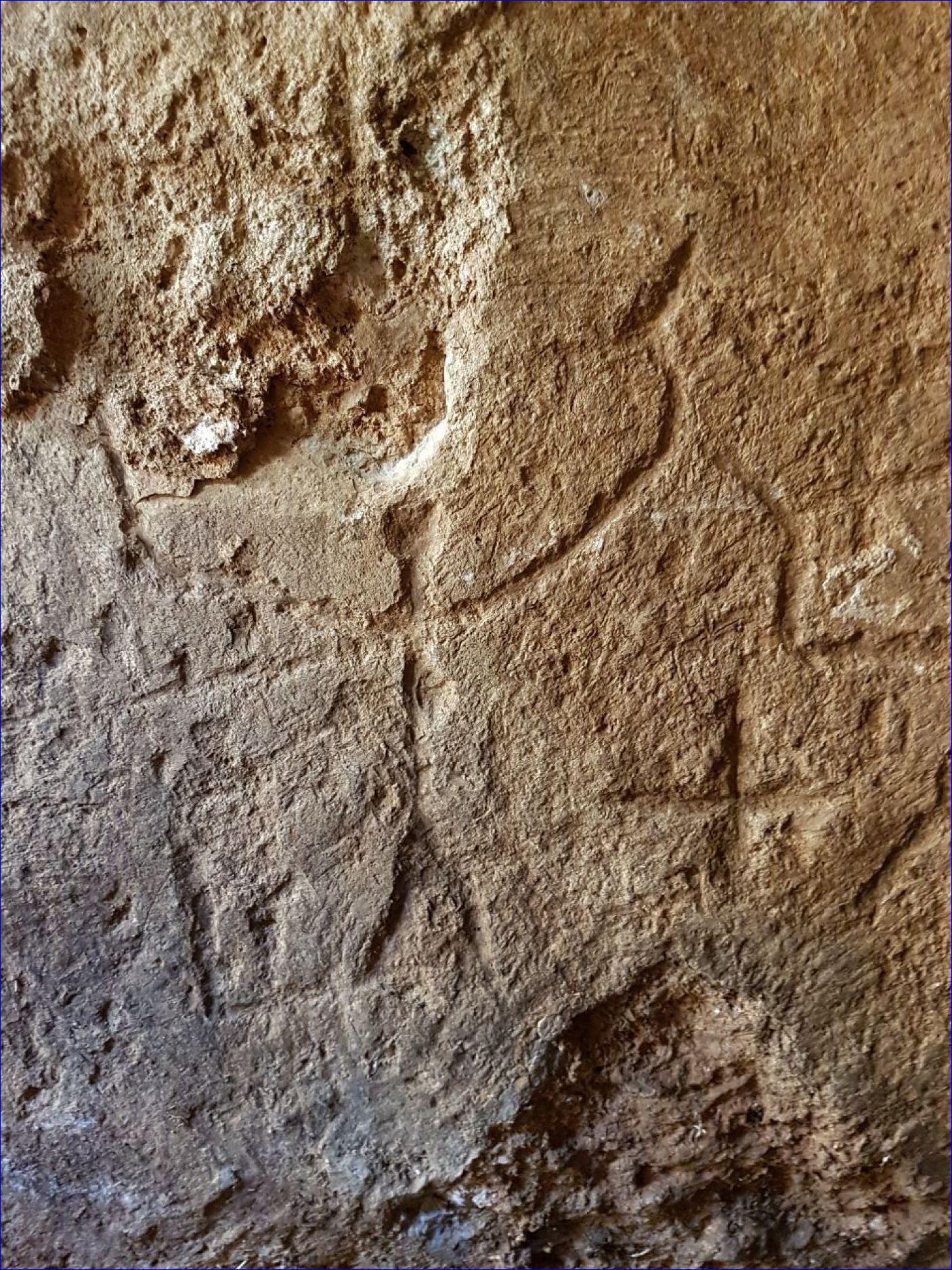


 Assaf Peretz/Israel Antiques Authority)
Assaf Peretz/Israel Antiques Authority)
The excavation was carried out with the aid of archeology students prior to the groundbreaking of a new residential neighborhood adjacent to the site initiated by the Construction Ministry.
According to Gilad Itach, director of excavations at the Antiquities Authority, the ancient reservoir -- which had numerous engravings on its walls -- was critical to the survival of local inhabitants living in the region during protracted dry seasons.
"It is difficult not to be impressed by the sight of the immense underground reservoir quarried out so many years ago," said Itach. "In antiquity, rainwater collection and storage was a fundamental necessity. With an annual rainfall of 500 mm., the region's winter rains would easily have filled the huge reservoir."
Itach continued: "On its walls, near the entrance, we identified engravings of human figures, crosses and a vegetal motif that were probably carved by passersby in a later period. Overall, we identified seven figures measuring 15-30 cm. Most have outstretched arms, and a few appear to be holding some kind of object."
The reservoir, he said, is nearly 20 m. long, and reaches a depth of more than 4 m.

 Gilad Itach/Israel Antiquities Authority)
Gilad Itach/Israel Antiquities Authority)
"The excavations reveal that the reservoir was built beneath a large structure with walls that are all nearly 50 m. long," Itach added.
"Some of the potsherds found on the floors of the rooms probably belonged to vessels used to draw water from the reservoir. It is highly likely that the structure and the reservoir were built at the end of the Iron Age [late 8th or early 7th century BCE], but whereas the building was abandoned during the Persian period, the reservoir was still in use until modern times."
In recent years, several other farmsteads built at the end of the First Temple Period have been discovered near Rosh Ha'Ayin.

 Gilad Itach/Israel Antiquities Authority)
Gilad Itach/Israel Antiquities Authority)
"They were probably erected after the destruction of the Kingdom of Israel in 720 BCE, when the Assyrian empire dominated the region," said Itach.
"The establishment of farmhouses in this area is interesting, given the fact that many regions within the decimated Kingdom of Israel remained desolate. Some scholars believe that the establishment of the farmsteads was motivated by the empire's wish to settle the area, which lay on an international route and near the western border of the Assyrian empire."
Itach said, however, that the structure exposed in the excavation is different from most of the previously discovered farmsteads.
"Its orderly plan, vast area, strong walls and the impressive water reservoir hewn beneath it suggest that the site was administrative in nature and it may well have controlled the surrounding farmsteads," he stated.
High school students studying the Education Ministry's Land of Israel and Archeology curriculum participated as part of a new educational program of the ministry and the Antiquities Authority designed to connect pupils with the past and train the archeologists of tomorrow.
Students opting for this track as part of their chosen matriculation assessment join an excavation for one week and undertake various tasks involved in the excavation; discuss the research questions and archeological considerations; and document the dig in an excavation journal.
Working in coordination with the Construction Ministry and the Rosh Ha'ayin Municipality, the Antiquities Authority plans to make the site, located adjacent to the residential neighborhood being built, accessible to the public.

or register to post a comment.